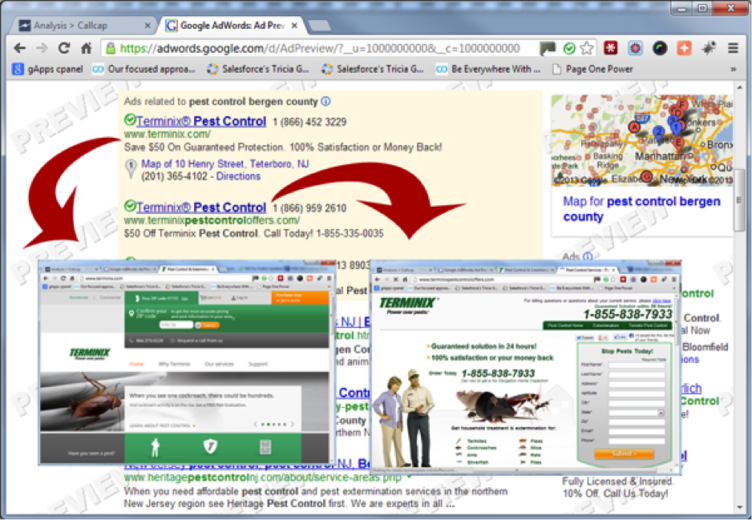Today’s post comes from PPC Hero Ally Justin Sous. Justin is a paid search consultant specializing in PPC and local SEO. You can connect with him on Twitter @JustinSous, Google+, or contact him via his website.
—
It’s no secret that more and more small businesses are showing up on the web to capitalize on advertising opportunities, including Pay Per Click. After all, with yellow page usage declining, SMBs and even larger businesses need to fill the void that print advertising has left behind. With PPC having such low barriers to entry, it’s a great way for small businesses with limited advertising budget to get their feet web with internet advertising. It’s quick to market, and when done the right way it can drive high quality leads at a low cost per lead. So why do I hear many of my prospects tell me “We tried PPC and it didn’t work for my business.” What’s the problem? Well, one of the problems may be double serving and national brands finding loop holes in Google’s Terms of Service.
Double Trouble
Double serving is something Google claims to take seriously to ensure that advertisers are not taking up more ad real estate than they should be. How detrimental would it be if national companies with deep pockets could afford to pay for all ad positions on a search results page? It would essentially wipe out small businesses from the PPC scene unless they decided to pay a premium they simply cannot afford. We’re already seeing evidence that Google’s double serving policy may not be as concrete as we think.
Put yourself in the shoes of a small business in the pest control industry for example; how would you feel if your biggest competitor who happens to be a national brand was double serving in your local market?
Majority Rules…Right?
Google stated in Q4 of 2012 that they have over 1 million advertisers, and the majority is small businesses. With rising costs in PPC, whether due to an increase in advertisers and/or the upgrade to Enhanced Campaigns, don’t you think Google would take double serving seriously to make sure the majority of their advertisers don’t experience a double whammy increase in cost per click? I’m not saying national brands are the only double serving offenders, but they can potentially do more damage to an entire local business market if ad space doubles and triples in cost due to some loopholes in Google’s policy.
How Are Advertisers Getting Away with Double Serving?
It appears that certain loopholes exist within the policy. These could be whether the sites (with common ownership) offer a different level of service/support, % difference in price, difference in product offerings, and/or a slight differentiation in brand. A certain combination of these exceptions will exempt you from Google’s policy, and you’ll then be the occupant of 2 positions in Google’s prime PPC real estate.
Here’s an excerpt from the policy:
|
Violations of this policy occur when multiple websites share Common Ownership (defined below), plus when two or more of the following factors are present |
|
| Common product offering | For physical goods being sold, the sites share products in common such that a user browsing the site would perceive little difference in inventory between the sites. |
| Similar pricing | When pricing is available on the sites, there’s a price difference between the sites of 25% or less for substantially the same product or service. When two or more sites solicit contact information from users in order to provide a custom quote, they will be considered to have zero price difference. |
| Similar customer support experience | The sites offer the same or similar type of product or service for which the customer can expect to receive the same or similar level of Support (defined below). |
| Brand | The sites have non-differentiated Brands (defined below) for which either the brand name is the same or the logo is the same. |
Google would be well served to tighten this policy and remove the double talk in an effort to create a level playing field. They would end up with more advertisers and less people saying they tried Google AdWords and it didn’t work. After all, it is easier to keep a happy advertiser than to win back one who was dissatisfied.




